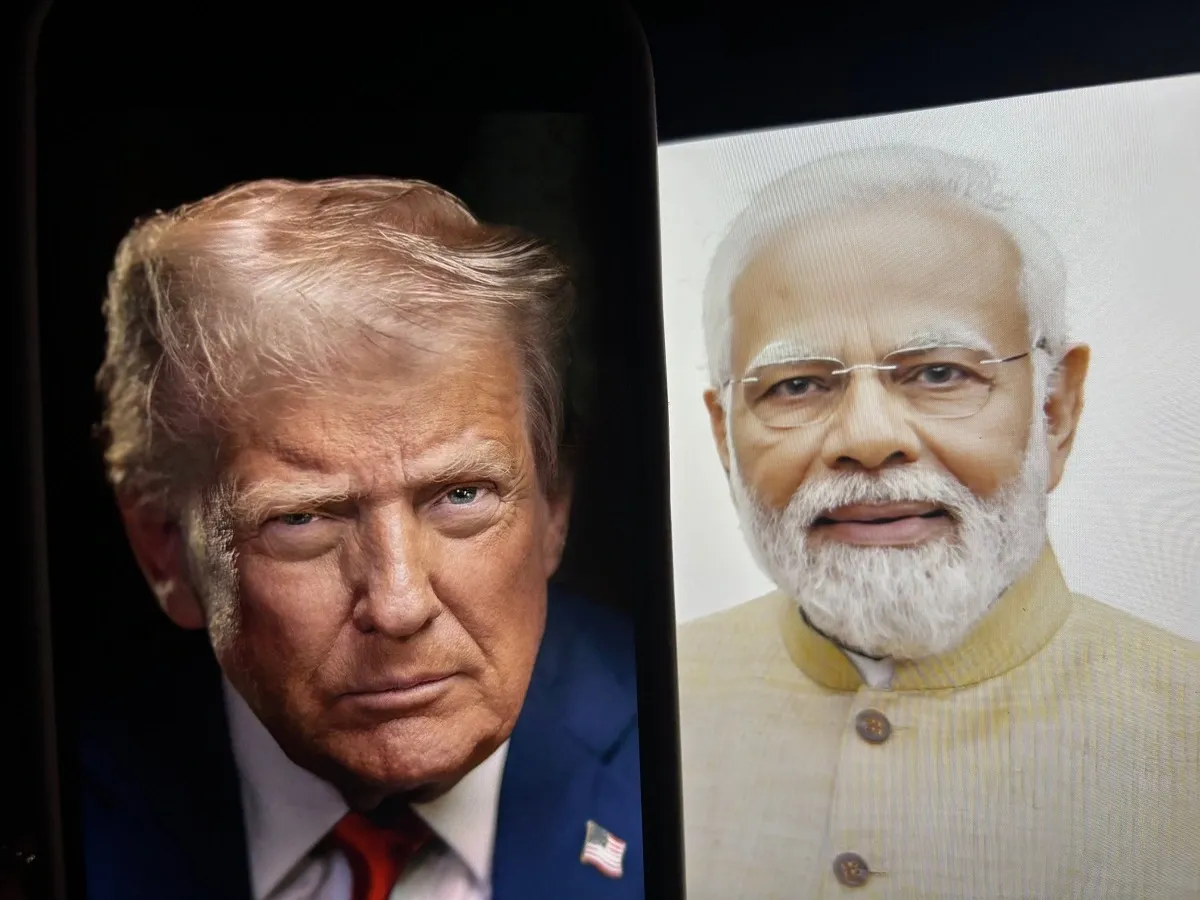Business News
What Donald Trump really wants from his tariff offensive on India, and how New Delhi is responding

5 min read | Updated on July 31, 2025, 12:33 IST
SUMMARY
US President Donald Trump has announced a sweeping 25% tariff on all Indian imports starting August 1 amid stalled trade negotiations.

India and the US teams concluded the fifth round of talks for the agreement last week in Washington.
US President Donald Trump’s decision to impose a sweeping 25% tariff on all Indian imports signals a mounting frustration in Washington over stalled trade negotiations and New Delhi’s ties with Moscow.
The tariff, set to take effect August 1, came as a surprise, just one day after Indian officials revealed a US trade delegation was due in New Delhi next month for another round of negotiations.
Trump also threatened an additional, unspecified penalty on India for purchasing of Russian crude oil and military equipment.
White House economic adviser Kevin Hassett confirmed that Trump was “frustrated” with the lack of progress and believes the tariff will “address and remedy” what he sees as a lopsided trading relationship.
Hassett said India has had a market that's been pretty much closed to American products, while the US has been wide open to theirs.
He indicated that Trump was frustrated with the lack of progress that the US made with India, but “feels that a 25% tariff will address and remedy the situation in a way that's good for the American people”.
Tariff and taunt
In a fiery post on his Truth Social platform, Trump accused India of erecting some of the “highest” tariffs and “most obnoxious” non-monetary trade barriers in the world. He also slammed India’s deepening energy and defence ties with Russia, calling both nations “dead economies.”
He said that discussions were underway to select the American oil company that would lead the partnership, adding that "maybe they’ll be selling oil to India some day", in an obvious swipe at New Delhi, whose relation with Islamabad is at its lowest in decades.
Negotiation breakdown
The latest escalation threatens to unravel months of trade talks aimed at hammering out a limited bilateral agreement. US and Indian negotiators had been working toward an interim deal this fall, with a US delegation scheduled to visit India on August 25.
Nisha Biswal, a former US Assistant Secretary of State for South and Central Asia, described Trump’s move as “hardball tactics” when there is an ambitious deal already on the table.
“There were many reasons why the final deal seems to have faltered. One, President Trump wanted to retain a minimum 20% baseline tariff on India; this was a non-starter for New Delhi,” Biswal, now a partner at The Asia Group, said, adding that Trump wanted US agricultural and dairy exports to India.
She said that Trump was unsatisfied with the concessions negotiated by US trade officials and wanted to deal directly with Prime Minister Narendra Modi.
However, New Delhi, according to Biswal, thought it had an expansive deal with the US Trade Representative and “didn’t want Trump to reopen or renegotiate terms like Vietnam.”
“Trump is now exerting maximum pressure on India to get Modi’s attention. Modi may want to examine what Japan, the EU and China did, all of whom have faced Trump’s ire. Keep cool, retaliate if you must, but keep the channel open,” Biswal said.
What Trump wants
Trump’s trade team has secured recent deals with Japan, the United Kingdom, and the European Union. But India has resisted Washington’s push for wider access to sensitive sectors, including agriculture, electric vehicles, petrochemicals, genetically modified crops, and processed foods.
According to Hassett, the White House expects Indian exporters will absorb some of the tariff’s cost to preserve their US market share, and, eventually, that India will make broader concessions.
“That's what everybody else has been doing, and then they might reconsider their practices, which have led to this higher rate. And over time, I would guess the Indian firms will be onshoring production in the US, and Indians might even open their markets more to us, so that we reconsider a future trade deal,” he said.
India’s response
The Ministry of Commerce responded cautiously, saying it was “studying the implications” of Trump’s announcement but reaffirmed its commitment to a “fair, balanced and mutually beneficial” trade agreement.
“The Government attaches the utmost importance to protecting and promoting the welfare of our farmers, entrepreneurs, and MSMEs,” the statement said, referring to India’s micro, small and medium enterprises.
It added that “all steps necessary” would be taken to protect national interests.
India has long resisted opening its agricultural and dairy sectors to foreign competition. No previous Indian free trade agreement has included tariff concessions in these areas, amid stiff resistance from farmers’ groups.
Related News
By signing up you agree to Upstox’s Terms & Conditions
About The Author
Next Story


